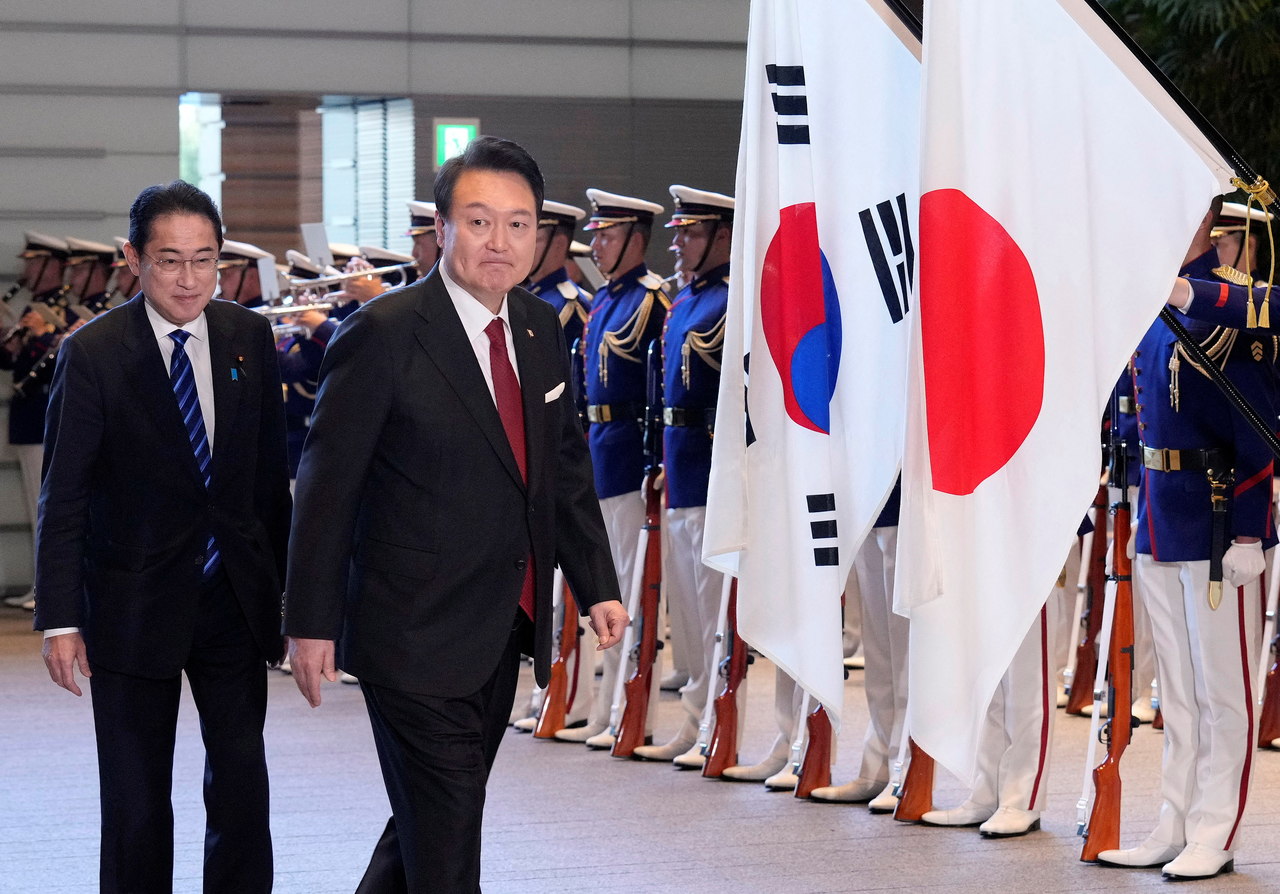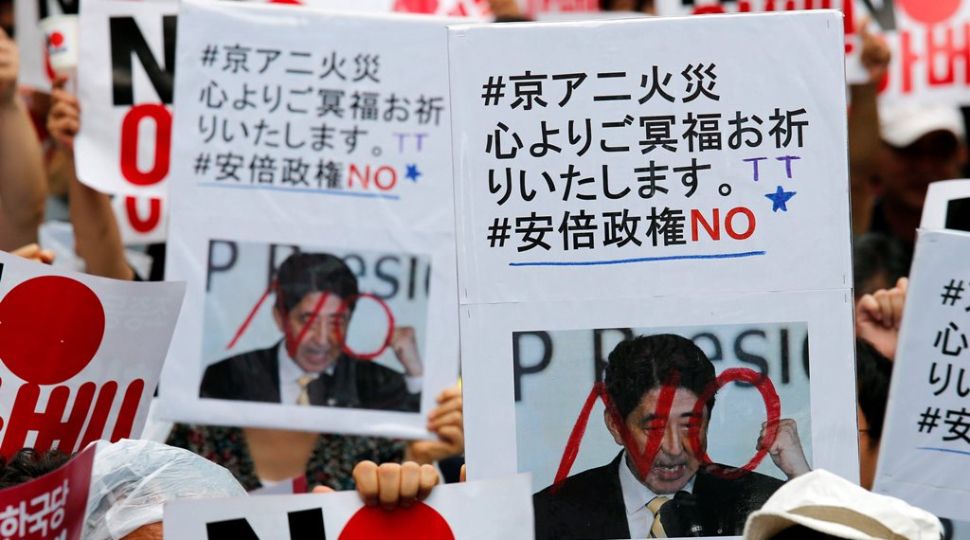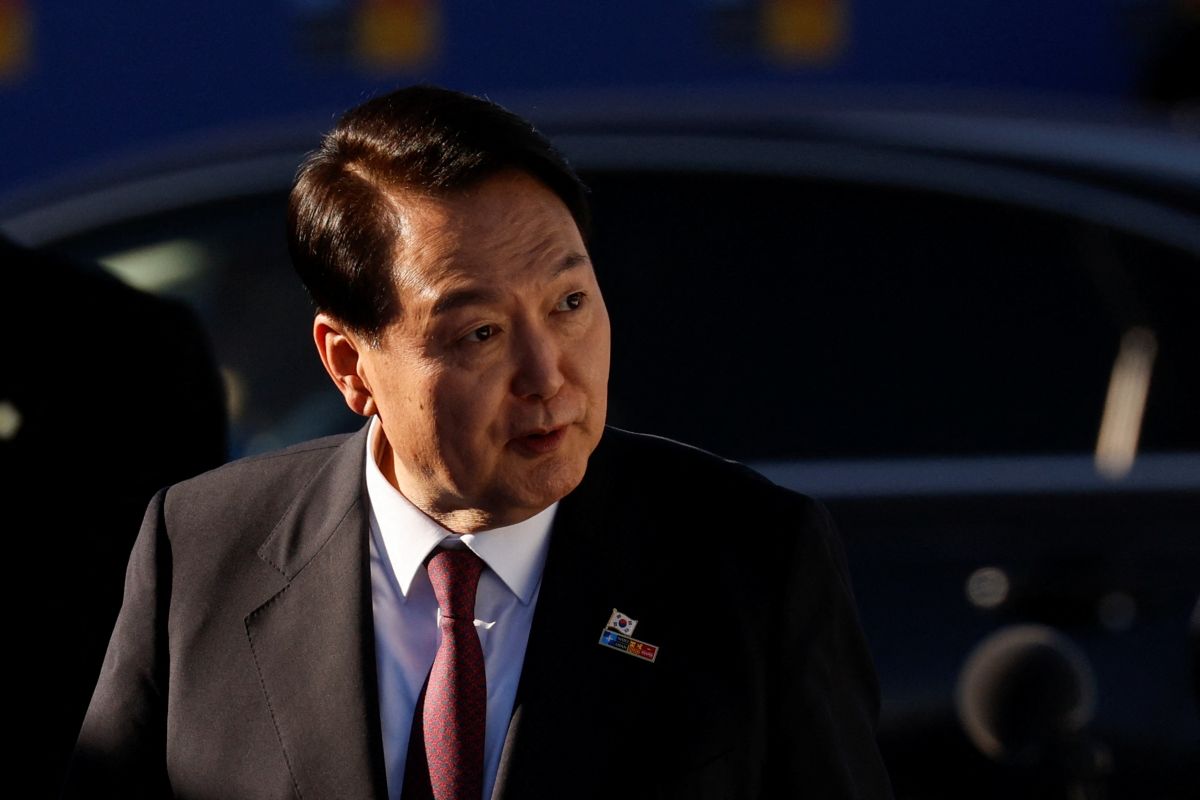South Korea and Japan Attempt to Mend Relations
On 16-17 March, President Yoon Suk-yeol visited Tokyo where he met with Prime Minister Kishida Fumio. The first visit of a South Korean president to Japan in more than 11 years was to resolve historical, political, and economic disputes. The lifting of trade restrictions and the tightening of security cooperation between both U.S. allies strengthens the United States in its competition with China. However, a lasting improvement in relations between South Korea and Japan will be hindered by the scale of the still-unresolved problems and lack of South Koreans’ support for Yoon’s conciliatory policy.
 POOL / Reuters / Forum
POOL / Reuters / Forum
In recent years, historical, political, and economic disputes between Japan and South Korea have escalated. In 2018, the Supreme Court of the Republic of Korea ordered two Japanese companies, Mitsubishi Heavy Industries and Nippon Steel Corporation, to compensate Korean forced labourers who worked for these companies during the Japanese occupation of Korea in 1910-1945. The Japanese government barred the companies from paying compensation, arguing that the issue of individual compensation was settled in the 1965 treaty on the normalisation of relations. In addition, the Japanese authorities moved the dispute to trade issues, imposing in 2019 restrictions on exports to South Korea of selected materials necessary for the production of, among other, computer chips. South Korea’s authorities filed a complaint with the World Trade Organisation (WTO) over Japanese actions. The South Koreans also boycotted Japanese goods and travel to Japan. The countries removed themselves from “white lists” of preferential trade partners, which slowed the supply of materials in the technology sector. In the political dimension, the parties avoided meetings even in multilateral forums, and South Korea suspended the military intelligence-sharing agreement with Japan (GSOMIA).
Actions to Mend Ties
During the campaign before the presidential elections in South Korea, in March 2022, conservative then-candidate Yoon Suk-yeol emphasised the need to improve relations with Japan. He pointed to common values and interests as well as the need to deepen the trilateral security cooperation between South Korea, the U.S., and Japan. After taking office, Yoon and his administration acted to settle the disputes with Japan. To this end, high-ranking South Korean officials visited Japan and diplomats and the heads of both governments met on the occasion of multilateral events (for example, during the NATO summit in Madrid last year). The U.S. urged South Korea to engage in dialogue with Japan as the Americans were interested in strengthening trilateral cooperation with their Asian allies in response to the deepening of China-Russia relations and the intensification of North Korea’s missile activity. Willingness to cooperate with Japan was also reflected in South Korea’s Indo-Pacific strategy, presented in 2022.
At the beginning of March this year, South Korea’s government presented a proposal to resolve the dispute over compensation for Korean forced labourers. The Yoon administration announced that 15 victims and their families who had won lawsuits against Mitsubishi Heavy Industries and Nippon Steel Corporation would be compensated by a South Korean public foundation. Donations are to be made by South Korean private companies that benefited financially from the 1965 treaty, under which Japan paid South Korea $800 million in reparations in the form of grants and government and private loans. Contributions can also be made voluntarily by Japanese companies.
South Korea’s offer received a positive response from the government of Kishida Fumio and paved the way for Yoon’s visit to Tokyo. During the meeting, the leaders pledged to fully restore the GSOMIA agreement, resume regular high-level bilateral meetings, and strengthen cooperation on responses to the threats from North Korea. In addition, Japan lifted export controls on trade with South Korea, and South Korea withdrew its claim with the WTO. The parties also announced they were reinstating each other to their respective “white lists” of trusted trading partners and will launch a dialogue on economic security. Japanese and South Korean industrial associations also set up a fund to support economic cooperation and contacts between young people from both countries. In addition, Kishida invited Yoon to attend the G7 summit to be held in May in Hiroshima.
Challenges
The Yoon administration’s conciliatory attitude, however, has not won widespread approval from the South Korean public. Living victims of forced labour rejected the government’s offer, stating that they would not accept money that did not come from Japanese companies. In opinion polls, around 60% of South Koreans negatively assessed the results of the Yoon-Kishida summit, as well as the government’s proposal to resolve historical disputes. The opposition Democratic Party, which has a majority in parliament, accuses Yoon of “submissive diplomacy” towards Japan.
Improvement in Japan-South relations will be difficult due to many contentious issues that were not discussed during the Kishida-Yoon summit. One of them is the issue of compensation for Korean women forced to serve as sex slaves for Japanese soldiers. According to the 2015 agreement concluded by the governments of Abe Shinzo and Park Geun-hye, this issue was to be “resolved finally” and established the South Korean Reconciliation and Healing Foundation. Japan’s government donated $9 million to the foundation as compensation to the victims and their families. However, in 2018, Moon Jae-in’s administration dissolved the foundation, arguing that the deal was made too hastily without consulting the victims. Japan considered this action illegal and accused South Korea of failing to comply with the agreement.
Another problem is the territorial dispute over the Dokdo Islands (Japanese: Takeshima), which are controlled by South Korea but claimed by Japan. South Korea also protests Japan’s plans to release contaminated water from the Fukushima nuclear power plant into the sea.
Dialogue is also hampered by the reluctance of the Japanese authorities to tackle difficult historical issues. During the meeting with Yoon, Kishida did not issue a direct apology for the crimes done to Koreans, referring only vaguely to the apologies of previous Japanese governments. South Koreans are also outraged by Japan’s further whitewashing of history. For example, school textbooks approved by the Japanese ministry of education contain claims distorting the coercive nature of the mobilisation of Koreans to labour in Japanese factories.
Conclusions and Perspectives
The actions of the South Korean and Japanese governments offer an opportunity to normalise political relations between the two countries and strengthen their cooperation in the field of security, especially in the face of threats from North Korea. The lifting of restrictions on trade contacts also creates an opportunity to intensify economic ties. For example, Japanese and South Korean business circles expect to cooperate in strengthening the resilience of semiconductor supply chains. At the same time, the expansion of a chip fabrication complex in Japan’s prefecture of Kumamoto and the announcement of the construction of the world’s largest industrial cluster in the South Korean province of Gyeonggi indicate that Japan and South Korea are likely to compete in chip production.
The Kishida-Yoon summit received a very positive response from the Biden administration. This confirms that it is in the U.S. interest that its allies strengthen cooperation, which is needed in the competition with China. Given the improvement in Japan-South Korea relations, the U.S. will develop trilateral security cooperation, which may lead to the expansion of the scope of drills and the establishment of a consultative group on extended nuclear deterrence. Although the Yoon government pursues a policy favourable to the U.S., it does not want to confront China. Therefore, the South Korean president signalled his country’s intent to resume the annual meetings of the heads of governments of South Korea, Japan, and China, held in 2008-2019. In addition, in exchange for a conciliatory attitude towards Japan, South Korea can expect to strengthen its position in economic relations with the U.S. by, for example, obtaining exemptions for South Korean companies under the American CHIPS Act.
Sustainable improvement of Japan-South Korea relations will require consistent actions of successive governments, including in education, to reach a publicly acceptable compromise. Real reconciliation will be hampered by both the attitude of the Japanese authorities on historical issues and the deep political polarisation in South Korea. The South Korean opposition will use anti-Japanese resentment to strengthen its position before the parliamentary elections in 2024 and the presidential elections in 2026. The election of a liberal politician as president may, like in 2017, result in abandoning the conciliatory attitude towards Japan.
Improving relations between Japan and South Korea is also politically advantageous for the EU and NATO as these countries are the main Asian like-minded partners, sharing a commitment to the rules-based international order. An economic challenge for the EU may be the joint efforts declared by South Korea and Japan to exclude their businesses from a carbon border tax.





.jpg)